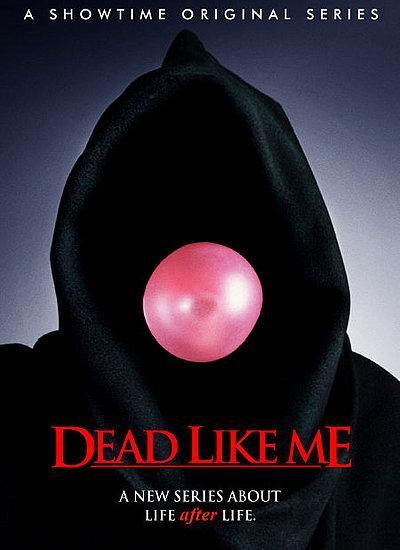Dead Like Me (TV Series)

TV Series (2003-2004). 2 Seasons. 29 Episodes. A college dropout, Georgia Lass is killed by a toilet seat that falls from the MIR space station on her first day at a temp agency. Upon death, she is recruited for a team of grim reapers - undead who mix among the and take people's souls just before they die. Along with fellow team members Mason, Roxy, Betty, and leader Rube, George discovers life after life. Georgia "George" Lass (ELLEN MUTH) is a young college drop-out who has no job skills and seems unable to take an interest in anything, including her own life. She cultivates an air of cynicism that infuriates her mother, baffles her father, and isolates her younger sister. George is about to get a wake-up call. With her mother Joy (CYNTHIA STEVENSON) insisting that she get a job, George applies to a temp agency that sends her out as a file clerk. Her lunch break - and her life - are cut short when a toilet seat from the MIR space station drives her into the pavement. George does not realize that she is dead until Rube (MANDY PATINKIN), the kindly leader of a team of grim reapers, points out her remains. Rube takes George under his wing and introduces her to the other members of his undead group: Mason (CALLUM BLUE), Roxy (JASMINE GUY) and Betty (REBECCA GAYHEART). The members of Rube's team of reapers are all, like George, people who died with unresolved issues. They still have lessons to learn that - for one reason or another - they failed to learn in life. They move about the Pacific Northwest in the full light of day. They walk the city streets and eat at all-night diners, just like anyone else. They have to find somewhere to live, cook, eat and do their laundry. They look just like everyone else but as grim reapers they appear physically different to the living than they did when they were alive. What George experiences beyond death is the focus of this darkly comedic series. It takes a slightly twisted look at life and at one possible version of life in the after life. What if death is not the end? What if it is not even an escape from the issues that plagued us? What if it is not a way to avoid accountability, but an opportunity to accept responsibility? What if it is a wake-up call?